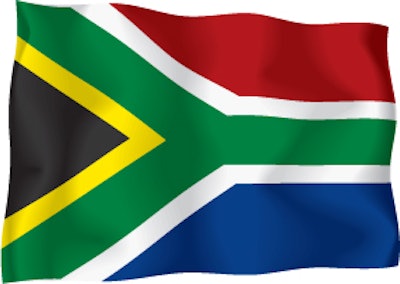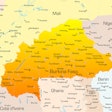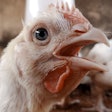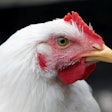
Continued outbreaks of highly pathogenic avian influenza (HPAI) on poultry farms appear to be putting pressure on South African egg and chicken supplies. The country’s vets are calling for emergency authorization of vaccines to protect birds from the widely circulating viruses.
Ahead of the festive season, eggs and poultry meat are beginning to be in short supply in South Africa, reports BusinessTech.
Supplies are currently limited as a result of a combination of HPAI outbreaks and disruption of the nation’s electricity supply (load shedding), according to this source. As a result, the country’s citizens as well as the retail and hospitality sectors are struggling to source their requirements for poultry products.
To help maintain supplies, poultry companies are cooperating by sharing day-old chicks, according to Sunday Times. Furthermore, some live production has been shifted to regions less affected by HPAI.
Around one month ago, the prospect was raised of shortages in the nation’s chicken meat supply as gaps of certain types of eggs were reported on supermarket shelves.
South Africa: HPAI affects more than 5.9 million birds
Since April of this year, the South African poultry sector has been under simultaneous attack from two serotypes of the HPAI virus.
Based on official notifications to the World Organisation for Animal Health (WOAH), there have been 10 confirmed outbreaks linked to a virus of the H5 group. These have directly impacted almost 1.35 million poultry in the Western Cape and KwaZulu-Natal provinces. The most recent reported outbreak began at the end of August.
According to the South African Poultry Association (SAPA), this virus has been identified as belonging to the H5N1 virus variant, similar to that circulating elsewhere in the world.
Furthermore, since May of this year presence of the H7N6 virus serotype has been detected at further 50 farms. Located to the east in Gauteng, Mpumalanga, Limpopo, Free State, and North West, affected farms have been centered around the cities of Johannesburg and Tshwane/Pretoria.
Up to the start of September, these outbreaks had impacted more than 4.57 million commercial poultry, including over 1.3 million culls.
South Africa sees no need for egg imports
Losses of birds so far have been put at 20% of national egg production capacity by SAPA. Temporary shortages of eggs are reported in the most affected provinces, Gauteng and Mpumalanga, according to its latest publication, Poultry Bulletin.
Almost 25% of South Africa’s 32.8 million egg industry birds are located in Gauteng, according to SAPA data. Each accounting for between 10 and 16% of this population are the following provinces: Free State, KwaZulu-Natal, North West, and Western Cape. In contrast, Mpumalanga and North West are together home to 47% of the country’s meat chickens.
The country’s 27 million hens produce around 7.8 billion eggs per year, according to the general manager of SAPA’s Egg Organization.
Despite the current market situation, this group does not expect it will be necessary to import eggs to fill the gap in the market.
In response to the disease outbreaks, the industry has raised biosecurity levels and restocked affected farms, said Charmain Lines.
Elsewhere in the SAPA publication, the special advisor to South Africa’s agriculture minister states that national annual egg production amounts to 553,000 metric tons. Of this, only around 1.6% is exported, mainly to neighboring states.
Vets call for emergency vaccine authorization
Despite the current disease situation, there is no immediate prospect of HPAI vaccination being authorized in South Africa. However, SAPA reports that discussions have been opened between the industry and the government with the aim to fast-track vaccine testing.
Describing the domestic poultry industry situation as a “crisis,” the South African Veterinary Association (Sava) has recently called on the government to allow the immediate importation of vaccines against the H5 and H7 HPAI viruses, reports BizCommunity.
According to Sava, such vaccines have been authorized and used successfully in other countries battling HPAI.
If an emergency authorization were to be applied, it says these vaccines could help secure domestic supplies of the most affordable protein sources for the South African population.
HPAI situation elsewhere in Africa
Most recent update on the HPAI situation in sub-Saharan Africa from the United Nations’ Food and Agriculture Organization (FAO) puts the total number of outbreaks in this region since October 1 of 2022 at 158.
In its report dated September 14, eight countries/territories had recorded the presence of the H5N1 virus variant — Gambia, Guinea, Niger, Nigeria, Reunion (France), Senegal, South Africa, and Togo. While Gambia only detected this virus in wild species, the other nations identified cases in domestic poultry, with or without infected wild birds.
In addition, South African poultry also tested positive for the H5, H5N2, H7, and H7N6 virus serotypes over this period, according to FAO.
Over the past two weeks, South Africa’s veterinary authority confirmed with WOAH a further four cases of HPAI in wild birds linked to the H5N1 virus. These were found in the North West and in Eastern Cape during the month of August. Since early March of this year, the number of positive cases in South African wild birds reported to the agency has reached 136.
View our continuing coverage of the global avian influenza situation.
















